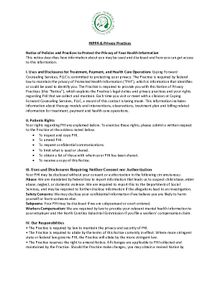Your Privacy Matters: Understanding How We Protect Your Health Information
 PDF
PDF
At Coping Forward, we are committed to maintaining the confidentiality of your health information. This notice explains how we may use and share your personal health information, as well as your rights to access and control your own records. We want to ensure that you feel informed and empowered to make decisions about your care, and we're dedicated to upholding the highest standards of privacy and security."
Download "HIPPA.pdf"
 PDF
PDF